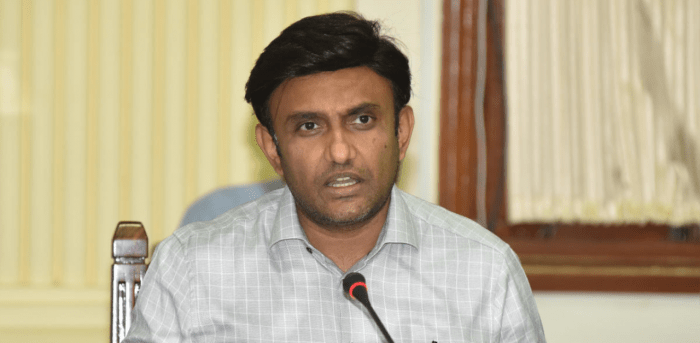Karnataka Health Minister Dr. K Sudhakar revealed on Friday stated that six genomic sequencing labs will be established throughout the state. He said the labs will be established at Bengaluru, Mysuru, Shivamogga, Hubli, Mangaluru, and Vijayapura. This comes at a time when Delta Plus and other mutated strains may lead to a rise in Covid-19 cases. While addressing the media, Sudhakar said, “Karnataka is setting up six genome sequencing labs in Bengaluru, Mysuru, Shivamogga, Hubli, Mangaluru and Vijayapura. Amongst them four will come up in medical colleges and two in district hospitals.”
Genomic sequencing aids the doctors and scientists to understand the transmission patterns, mutation of the strains and the onset of outbreak.
Further on, while talking about the Delta plus variant, Sudhakar stated Karnataka has registered two cases, one in Bengaluru and another in Mysuru. He said that both of them have mild symptoms and severity was not identified. He iterated that there is no need to panic about the new variant of Covid-19.
Sudhakar said, “Two cases of Delta plus variant have been identified in Karnataka—one in Bengaluru and one in Mysuru. The patient in Mysuru has recovered, and no severity was seen in either case. Primary contacts of both patients have tested negative, therefore, there is no need to panic about the variant. We are also conducting Genome sequencing to keep a track of the Delta and Delta plus strains.”
He said that he will conduct a meeting with Chief Minister BS Yediyurappa and the experts about the treatment protocols as there is a difference in treatment for Delta and Delta Plus variants.
Sudhakar warned about the neighbouring states of Maharashtra and Kerala having a positivity rate of over 10 %. Regarding the closing of borders, he said, “Kerala and Maharashtra are seeing a surge of the variant cases; the positivity rate in the two states is over 10%. The district administration to conduct more tests in border areas.”


